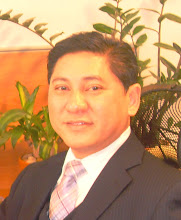Mentoring: The Future of the Industry
I started a mentoring program 25 or 30 years ago out of necessity. I was a general agent and producer — Master Agency Award and Top of the Table qualifier — which kept me busy. Too busy, in fact. I had no time to do my own personal production and run an agency as well.
So I involved junior agents. I trained them. They did the paperwork while I found prospects and made sales. Eventually they’d start selling themselves.
In those days, agents didn’t like to split commissions, so if they needed help with a prospect, they’d turn to a sales manager, who’d work with them for free. That didn’t seem right to me, so I said that even managers couldn’t go with the newer agents unless they had an agreement to split the commission.
My goal was to free up the sales managers to do their jobs and to get agents to do more joint work with other agents — to turn to the best advisor for the client, usually a senior advisor. However, the agents couldn’t work together until they agreed to a commission split and who was going to do what. They could split the commission any way they liked; for example, one-third to the finder, one-third to the seller and one-third to the policyholder service provider. It wasn’t a rigid rule, just a guideline.
About 80 percent of new agents’ sales were solo work, but 60 percent of their commissions came from joint work. Even with split commissions, they were making much more money because they could work bigger cases together than they could alone.
At about that time, MDRT was trying to put together a mentoring program to bring more new agents up to MDRT levels. There were some models out there, but there was a lot of resistance to them because they were rigid. Neither agents nor managers liked them.
MDRT came to me because of my involvement with GAMA and the model I was using. The agents would accept me because I was a producer and managers would accept me because I was a manager.
We formed a committee to iron out the details. Half the committee members were agents and half were managers. We concluded that any mentoring system had to be totally flexible. The mentor and aspirant would decide what’s acceptable — commission splits, the amount of time and energy put into the relationship, who would do the training (e.g., the mentor, agency, company or LUTC) and the like. Whatever they decided, they needed to decide in advance. They signed a contract. It wasn’t legally binding, but set out the ground rules. It was a blueprint, so to speak.
We also set up a monitoring system to track the aspirant’s progress. The aspirant was to fill out the report forms but the mentor and manager agent had to sign off on them.
It looked like a good plan, so we approached the boards of MDRT and GAMA and set up the MDRT/GAMA International Mentoring Council to run the program. The president of the council serves for two years and alternates between an MDRT member and a GAMA member.
After a pilot program in 1995, we were in full swing in 1996. In 2007, there were more than 40 companies and 10,131 mentoring teams (mentor, aspirant, manager) in 12 countries participating.
There’s no question that the number of new people entering the industry is down and retention is a problem. Training isn’t as extensive or intensive as it was. The most effective recruiters and teachers are experienced advisors. Managers are so involved with compliance and administration nowadays that they just don’t have time. Mentoring attracts recruits, keeps them and gives experienced advisors the help they need to boost their production.
I believe that the future of the industry depends on producers passing on their knowledge and skills to struggling and new advisors. It depends on mentoring.
Norman G. Levine, CLU ChFC
Past President, GAMA International
President
Levine Enterprises
Palm Springs, CA
=================================================================================================================================================================================================
Richaard Wong RFP, ChLP, FChFP Best Practices, Training & Development
Sunday, April 26, 2009
Subscribe to:
Post Comments (Atom)

1 comment:
MDRT is as committed now to mentoring as ever. In an effort to provide more resources, MDRT has recently retooled the program to identify resources members can use to help when they are mentoring another agent.
Called "Mentoring 101" - the box of resources is designed to help agents provide proven ideas from MDRT talks in the past that are timeless.
We hope these tools will bring new energy to the program and help mentors through the world achieve the objectives Norm and the GAMA partnership envisioned years ago.
Thank you Norm, for all you have done and meant to our industry.
Guy Baker
MDRT EXCOM
Post a Comment